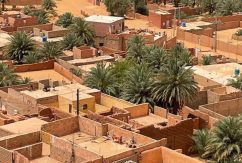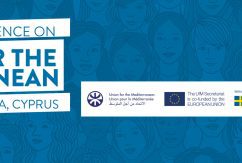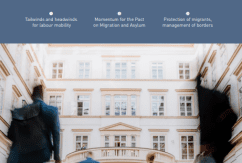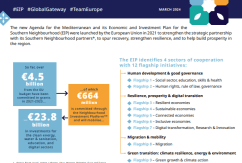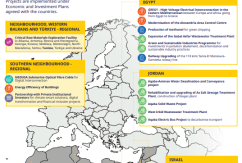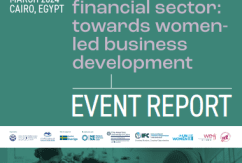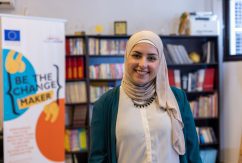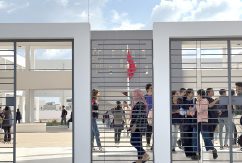Palm tree exploitation project boosts local economy and social cohesion in southern Algeria
Thanks to the support of the EU-funded programme CapDeL, some 10 projects have been implemented across Algerian provinces, contributing to the socio-economic growth of remote areas. The Azro project, established by local NGO Tenasse, is one of the success stories of this programme.
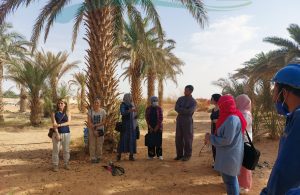

Renowned for its luxuriant palm grove, Timimoun sits at the heart of Adrar Province, in south-central Algeria. Last year, some 27 young men and women reaped the fruits of this natural resource by participating in Azro, a local project aimed at contributing to the improvement of economic conditions of women and unemployed youth through the valorisation of palm products.
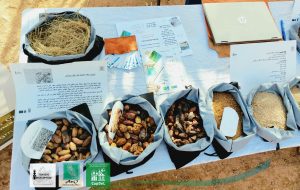

The many lives of a palm tree
Standing proudly next to an exhibition table filled with bags and homeware made out of palm leaves, Fatiha Chaib rejoices over the success of these handmade products at a local fair. The manager of Azro and president of Tenasse marvels at how far the project has come since it was launched over a year ago.
“Azro was divided into two main segments: a series of handicraft workshops for 25 women (20 adults and 5 youth) and another series of palm climbing training for young men,” she explains, noting that both pillars were centered around the valorisation of palm trees material.
Established in January 2021 thanks to the support of the CapDel programme, “Azro has truly been a success, despite the upheaval of the COVID-19 pandemic,” Fatiha explains.
For women, a number of hands-on workshops were organised, aimed at teaching them the production of modern, palm leaves made articles, such as pillow cases, hats, home decorations etc. The products were then advertised and sold on the association’s social media and in local and national fairs.
“This was a really gratifying process for these women, as they felt acknowledged for the quality and beauty of their work,” insists Fatiha.
Men, for their part, were trained in palm-tree climbing and agricultural exploitation of palm material. “They learned the security measures necessary to perform palm-tree climbing such as how to use a professional harness or ways to best secure their hands to avoid injuries,” the project manager continues.
Additionally, the young men were also acquainted with the agricultural techniques to turn palm trees’ waste into animal forage, learning how to operate every step of the production chain. “We provided them with a grinder and a mixer, with which they produced foodstuff for herds of camels, chickens and sheep,” Fatiha explains, adding that the youth also followed a training to establish and manage their own start-up, through a partnership with the local agricultural institute of Timimoun.
Overall, beneficiaries learned ‘‘lifelong skills’’, Fatiha asserts, “whether they decided to continue as individual entrepreneurs or to work within a cooperative”.
Nowadays, and despite the official closing of the Azro project back in May 2022, Fatiha still follows up with the beneficiaries to offer them any opportunity that arises in the artisanal field. “Recently, CapDeL launched an eco-wrapping competition, in which most of Azro’s beneficiaries participated. It is important for us to continue supporting them even after the project has ended,” Fatiha stresses.
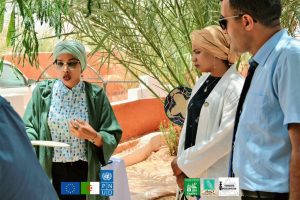

Boosting isolated towns: the goal of CapDeL
Known as the “red pearl of the Algerian Sahara”, Timimoun has long suffered from its status as an isolated town. But, with the launch of the EU-funded programme ‘Participatory Democracy and Local Development’ (CapDeL), the town is witnessing a clear revival.
Implemented in ten communes across the country, CapDeL aims at “promoting a coordinated and transparent local governance, reinforcing social cohesion and developing an inclusive and diversified local economy”, according to its website.
“In Timimoun, 10 projects like Azro have benefited from the support of CapDeL, which has greatly boosted the local economy,” explains Oum Elkheir Chaib, CapDeL local coordinator for the municipality of Timimoun.
She recalls how the CapDeL programme started with a comprehensive diagnosis carried out to identify the region’s strengths and weaknesses. “We then collectively established a vision that will be implemented over a period of 20 years and that will consolidate the potential of the municipality, without abandoning its local heritage,” she continues, noting that “if the experiment succeeds, it will be generalised to all the country’s communes”.
“In addition to the palm-tree project, CapDeL has also supported a project aimed at the restoration of the foggara of Amghier Timimoun, or one dedicated to the integration of autistic children into society, dubbed ‘Couleurs d’espoir’. The support to such projects has really created a radical change in the local community,” Oum concludes with a beaming smile.
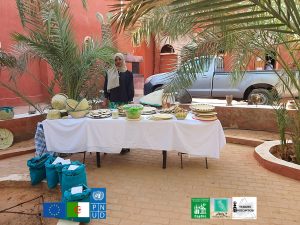

The Programme
The programme ‘Participatory Democracy and Local Development’ (CapDeL), is promoted by the Algerian Ministry of the Interior, Local Authorities and Regional Planning and the United Nations Development Programme (UNDP), with the support of the European Union. Through strengthening the capacity of local development actors, it aims at promoting a coordinated and transparent local governance, reinforcing social cohesion and developing an inclusive and diversified local economy. The CapDel is implemented in 10 pilot municipalities, including Timimoun.
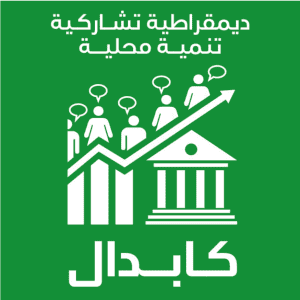

The project
Azro is a project aimed at contributing to the improvement of economic conditions of women and unemployed youth through the valorisation of palm products in Timimoun. Implemented by local association Tenasse, the project lasted from January 2021 to May 2022. It has benefited 27 young women and men across the Timimoun commune.


